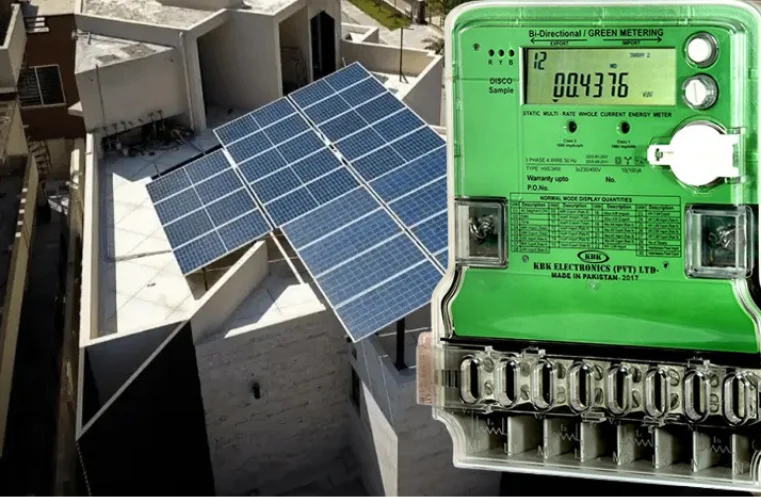ISLAMABAD, March 24: The Renewable Energy Association Pakistan (REAP) has raised concerns over recent amendments to the Distributed Generation and Net Metering Regulations, warning that these changes could encourage consumers to shift to off-grid solutions.
While this shift may not directly affect the revenues of power Distribution Companies (Discos), it could lead to significant financial losses for solar investors who have already imported millions of dollars worth of inverters.
In a letter to the Power Minister, REAP emphasized that the 2015 Net Metering Regulations have been instrumental in alleviating pressure on the national grid and encouraging investments in clean energy.
However, the recent amendments, which involve a shift from net metering to gross metering and a substantial reduction in the purchase rate for solar-generated electricity, present serious risks to the sustainability of the solar industry.
Key Concerns
REAP highlighted the following key concerns:
Job Losses: The amendments could negatively impact thousands of skilled workers, technicians, and engineers involved in the installation of net metering systems, potentially leading to higher unemployment in the sector.
Off-Grid Shift: With the proposed changes, residential and commercial consumers may choose to move off-grid, reducing government revenue and increasing reliance on captive power plants.
Financial Impact on Solar Businesses: Solar businesses that have invested heavily in imported on-grid inverters may face financial strain as these inverters could become obsolete due to the regulatory changes.
Wajid Chatha, a power sector analyst, criticized the Distribution Companies (Discos), accusing them of being “insensitive to strategic initiatives” and failing to anticipate the impact of solar power integration.
Read More: Solar Industry Opposes Govt’s Plan to Slash Net Metering Rates
He pointed out that concerns about the integration of solar power into the grid were raised two years ago by the System Operator and other stakeholders, yet Discos failed to address these issues in time.
Continuous Policy Shifts
Ammar H Khan, another expert, questioned the rationale behind the policy shift, saying, “There is no reason to swap an electron with a marginal cost of Rs 10 with one that costs Rs 28,” emphasizing the economic inefficiency of the proposed changes.
On the other hand, Rehan Jawed, a representative from the Karachi Association of Trade and Industry (KATI), expressed support for the government’s decision.
He stated, “We as industries back the new net metering rates. Purchasing and importing electricity at Rs 10 per unit is beneficial for us in the long run.”
While opinions remain divided, the policy shift could have significant implications for Pakistan’s solar industry, as well as for consumers, investors, and the broader energy sector.
Also Read: Big Changes in Solar Net Metering – Here’s What You Need to Know!
Adnan Zafar, another expert, noted that Net Metering is fundamentally different from utility-level renewable energy limits and is essential for the equitable distribution of “distributed generation.”
He argued that the current distribution generation (DG) system is not being distributed according to load requirements, which could be problematic in the long run.
Comparable States
Zafar also pointed out that it would not be prudent to compare Pakistan with other countries, as global trends are focused on rules that ensure the equitable distribution of net metering, with curtailments made as per system requirements when needed.
Power Minister Sardar Awais Leghari responded by saying that the recent changes to net metering regulations have helped reduce the cost of solar panels, making solar energy more accessible to the public.
He highlighted that over 4,000 MW of solar energy has already been added to the national grid, with projections suggesting that this could exceed 12,000 MW in the next eight years.
Also Read: New Small Wind Turbine Offers 2,500kWh Power as Solar Panel Alternative
Leghari also stated that future solar net metering customers would be able to recover their investments within three to four years, representing an excellent return on investment.
The outcome of this regulatory shift remains uncertain, with both positive and negative implications for the solar energy sector in Pakistan.









